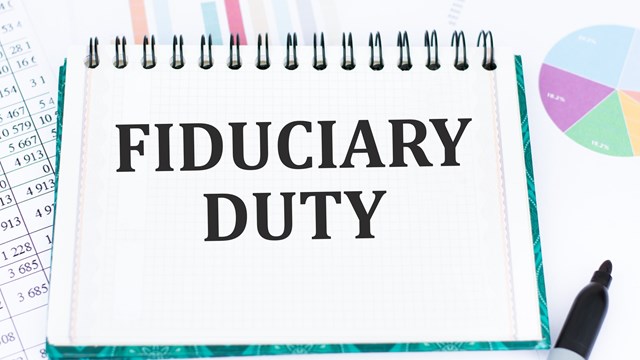Sixteen years ago, Wayde Scheffer was a vice-president with United National Bank in Califon, New Jersey. He was also president of his condo association board, and he wasn't particularly impressed with the parade of management companies that he had been charged with interviewing. "This is how we do things" seemed to be the party line among company representatives at the time, Scheffer recalls—a take-it-or-leave it approach that he felt didn't offer much hope for personalized service. At some point in the selection process, a fellow board member turned to Scheffer with a momentous suggestion: "Geez, Wayde—you should do this!" And so he did.
Early Access
Scheffer promptly resigned from the board, put together a management plan, and won the contract. It took a while—a year, to be precise—but he eventually won another one with a different association. And then another. And another. Today, Scheffer's company, Access Property Management, manages approximately 15,000 units in some 80 community associations from eastern Pennsylvania to the northern Jersey Shore.
At first, Scheffer handled the accounting side of the business with the help of a part-time bookkeeper and hired on-site managers to oversee the properties themselves. Those two functions—financial services and physical property management—remain at the heart of what Access does. Only now, the company's accounting department comprises nine people, including a collections officer, accounts receivable and payable clerks, and one person devoted entirely to closings. "That's a process on its own," says controller Stacey Nixon. Access also employs 20 property managers, including nine on-site managers who work directly from offices with the company's largest clients, and 11 portfolio managers who oversee anywhere from three to 10 clients each from the company's own offices in Flemington, Edison, and Eatontown.
According to Scott Dalley, the company's senior vice-president, the community associations that Access serves contain anywhere from a dozen units to over 2,000. While it is primarily a residential property management company, five to 10 percent of the organization's business comes from commercial property management, an area where both Dalley and Scheffer would like to see future growth. (Dalley points to the growing trend away from traditional office leases and toward condominium office buildings, "where instead of spending your money on rent, you actually own one or more units.")
Access to Basics
Dalley joined Access in 1996, having previously served as director of Hunterdon Youth Services. Like Scheffer, he had also been president of his condo board. Dalley now oversees the company's property managers—a role for which he is particularly well-suited, having first worked as an on-site manager for the company, and later as a portfolio manager, as well.
"All the services that these associations are responsible for providing are spelled out in their governing documents," Dalley says—from landscaping to snow removal, irrigation to swimming pool maintenance. "We help the boards provide those services to the communities." Often, that means acting as liaison between associations and vendors. But it also means spending a good deal of time responding to homeowners' concerns and complaints, and learning about the particular problems that face each individual community.
"The board members have direct access to the property managers," says Tracy Blair. Blair, who joined Access three and a half years ago, spent her first two years with the company as an on-site manager, and now handles five associations as a portfolio manager. "Someone actually answers the phone, instead of a voicemail system," Blair says. "We get to know the board members, who know that we will respond and take care of things."
In addition to spending a large chunk of her day on the phone with homeowners and vendors, Blair also takes the time to prepare an information packet for each of her associations' monthly meetings—a packet that can include everything from an association's latest financial statements and the details of its landscaping contract to the most recent batch of homeowner complaints. "It's a varied job with lots of different things to do every day, which is why I enjoy it," Blair says.
Continuing Ed
Blair also appreciates the educational opportunities that Access provides. The company doesn't actually require its employees to pursue certification by the Community Associations Institute (CAI), a national non-profit organization that awards a number of designations for property managers, "But it's certainly encouraged to the point where we'll pay the tuition," Scheffer says. "Going to these [CAI] classes has proven very helpful for our property managers." Blair agrees. "Not only do you get taught by a very skilled instructor, but I find it very useful to speak with other students," she says, adding that the contacts she's made have enabled her to share information and expertise with fellow industry professionals.
Access also provides its own in-house training, bringing in local professionals such as attorneys, accountants and insurance agents to address particular topics. "We feel that education is very important," Scheffer says. Upper-level management is hardly exempt. In April 2005, Access received the CAI's Accredited Association Management Company (AACM) designation, which requires that all CAI-designated personnel in the organization complete at least 12 hours of continuing education every two years. Scheffer and Dalley both hold CAI certifications, as do regional vice-presidents Katherine King and Denise Lindsey.
Minding the Money
In addition to providing physical property management, Access offers a wide range of financial services to its customers. According to Nixon, the company's accounting department prepares monthly financial statements for each association, oversees their investments, and tries to ensure that their capital reserves are fully funded. Nixon and her staff also offer budgetary assistance, analyzing association cash flows and making recommendations to help each association make the best use of its funds. They also keep general ledgers of all association transactions, and prepare bank reconciliations for all cash accounts.
"That's a big plus; some management companies don't do that," says Nixon, a CPA who recently came to Access from an accounting firm specializing in condominium associations.
In describing the difference between her previous position and her new role at Access, Nixon emphasizes the amount of "face-time" she now spends with each association and its individual board members. "Being an auditor, you're in and out. Here, it's more personal," she says. "We handle a lot of homeowner calls regarding payments that need to be made, and we talk to a lot of lawyers." Nixon herself tries to attend most major association meetings to help board members understand and interpret their financial statements.
Flexible Strategies
That kind of commitment to customer service is consistent with Scheffer's overall philosophy—a philosophy that stems from his own previous experience as a board president. According to Scheffer, "Access tries to be a little more flexible" than the companies that he interviewed back in the 1980s. "Each association is different, and has different needs. We try to tailor our services to match the needs of the association," he says.
Access has also taken advantage of the various technological tools now available to professional property managers. In January 2004, the company installed computer software that allowed it to fully integrate the accounting and property management functions at its three central offices within a single networked system. It is currently installing a server that will allow on-site managers to access the system, as well. The software, called TOPS, is used to generate work orders and financial statements, and can track maintenance requests from inception to completion.
"I just love the program," Blair says. "If used properly, it really does make the property manager's job more streamlined." This fall, Access plans to issue wireless PDAs to all of its property managers, who will then be able to upload digital photos to vendors directly from work sites.
In addition, the company has taken advantage of the Internet to expand the range of services it offers to homeowners. Access currently provides a community website service that allows associations to generate online newsletters and post electronic classified ads. In the future, it plans to allow associations to post their master deeds and other governing documents online, as well—a service that will not only benefit current residents and prospective buyers, but the company itself.
"It'll save us a ton of storage," Scheffer says. And while homeowners can already pay their fees directly from their bank accounts through regularly scheduled electronic withdrawals, Nixon says they'll soon be able to do so online, via credit card—and to view their account balances in real-time.
In the end, however, these high-tech tools are just one more means toward the company's ultimate goal—a goal that Scheffer sums up in a single sentence.
"We want to serve the needs of our clients," he says. "Everything else flows from that."
Alexander Gelfand is a freelance writer living in New York City.







Leave a Comment